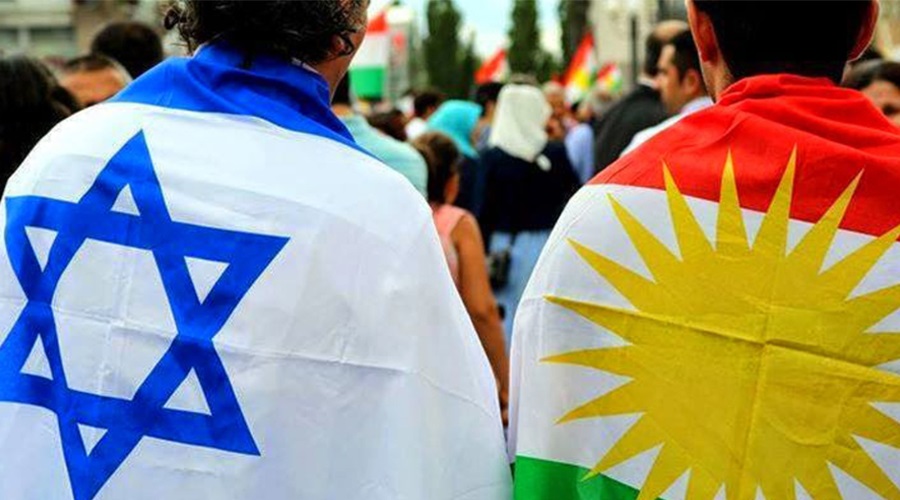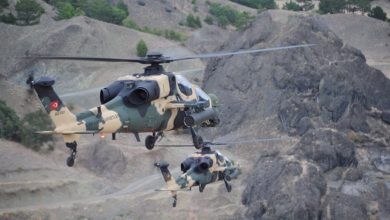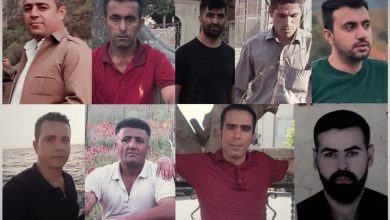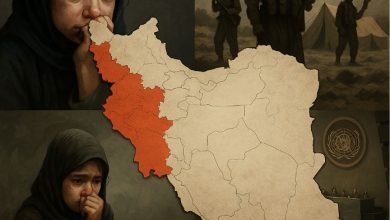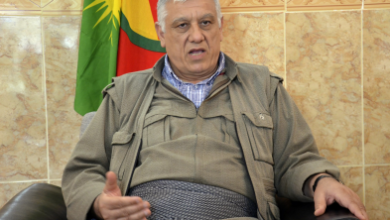Introduction
Many articles can be found stating that Kurdish separatism today is heavily fueled by the US and/or Israel, in an attempt to undermine regional powers such as Turkey, the Islamic Republic of Iran and the Syrian Arab Republic. Kurdish separatism is seen by interfering parties as a way to weaken these powers’ grip over their own citizens and as footmen to be used against enemies in the region.
Most of times, statements like these are done off as propaganda by the mainstream media and separatist parties’ media outlets. Yet, it remains interesting to perform more research on the background of these allegations.
It is true that Israel has been attempting to influence Kurdish politics for a long time. Though the Kurds, often biased by their own hope for an independent state, have misperceived this interference as solidarity from one stateless people to another. Israel has in fact adopted a more general interference policy long time ago, that serves its own goals of finding allies in the region and normalizing ties with non-Arab states and minorities. [1]
The Alliance of the Periphery
The ‘Alliance of the periphery’ or the ‘Periphery doctrine’ is the official name of the foreign policy strategy that Israel developed to start close strategic alliances with non-Arab Muslim states and minorities throughout West Asia to counteract the once united opposition of Arab states to the existence of Israel as a state. [2]
It was developed by David Ben-Gurion, the first Prime Minister of Israel, and employed chiefly towards Turkey, pre-revolutionary Iran and Imperial Ethiopia, as well as the Kurdish community across the Middle East such as in Iraq and Iran.
Nations such as Turkey and Iran, which were considered rivals of Arab states for regional dominance, were steadily cultivated by the Israeli government, which sought broader acceptance of its legitimate existence and security from nations in the region as well as seeking a window for future communication, negotiations and normalization of ties with Arab states. The Shah of Iran was a major ally of the United States, and thus the United States facilitated the dialogue between Israel, Iran and Turkey.
The principle was also applied towards the Kurdish people. Israeli government officials provided extensive support to Kurdish political parties and their aspirations for greater self-government and even independence. The government of Iraqi Kurdistan has maintained open ties with Israel and is an influential lobby for the establishment of normal diplomatic relations between Israel and Iraq. Kurdish parties were supplied, financed and even armed by the Israeli government to remain as a form of pressure on the states with a significant Kurdish minority.
The policy today: Israelian interference in Kurdish separatism
The overthrow of the monarchy of Iran in 1979 was a major setback for the ‘Periphery doctrine’. The newfound Islamic Republic of Iran severed relations with Israel, and its leaders such as Ayatollah Khomeini, Ayatollah Khamenei and Mahmoud Ahmadinejad have repeatedly called it an illegal entity. The Islamic Republic of Iran has in fact become the greatest enemy of Zionist Israel, as it openly backs Palestine and actively defends states in the region that face Zionist oppression and aggression.
Nowadays, Arab states on the other hand do not form as big of a threat to Israel anymore. Arab states, pressured and bribed by the US under the Trump administration, have been one by one softening up to the presence of an Israelian state in the region. Once standing up for the Palestinian people, one by one start to normalize ties with Israel. The current opposition to normalizing ties with Israel is mostly led by the Islamic Republic of Iran, which is openly accused of funding armed organizations like Hezbollah and Hamas to oppose Israelian presence in the region.
Turkey’s stand on Israel is soft as well. Although president Recep Tayyip Erdogan regularly smears Israel in Turkish mainstream media, it has excellent ties with the country.
It is not so hard to see the main reason Ben Gurion’s Periphery doctrine is still being applied to the Kurdish people today. It needs the Kurds as a tool to use against its threats: an unpredictable Turkish president, an anti-zionist Syrian president Bashar al-Assad, and of course archenemy Iran.
Israel and the Iranian Kurds
It is thus common knowledge that Israel and the Iranian Kurdish insurgent organizations have a common interest in weakening the Government of Islamic Republic of Iran. Which is also the main reason Israel has shown major interest in monitoring Kurdish politics, movement of Kurdish insurgent organizations, and financially supporting several of them. [3]
Problem is, they are heavily splintered. Four major parties compete with each other for support of the people and help from outside: the two oldest parties, the Kurdistan Democratic Party of Iran (KDPI)(which itself has two branches) and Komala; Parti Azadi Kurdistan (PAK), which was established in 1991; and the youngest but most active one, called Partiya Jiyana Azad a Kurdistane (PJAK), which was established in 2004 and is considered an offshoot of the PKK.
The PKK – the largest armed Kurdish non-state organization – has always been a point of interest for Israel. Israelian-PKK relations were tense because of its strong relations with Israel’s enemies—the Syrian government and the Palestinian Liberation organization (PLO)—during the 1980s and 1990s, while Israel had strong ties with Turkey at that time. But more recent events and changes in politics – such as Erdogan’s rise in Turkey and PKK’s internal changes after Ocalan’s capture – have changed the PKK and Israel into more suitable partners nowadays. Israel shows major interest in the PKK and its offshoots in Syria and Iran. It has been openly sending arms and aid in return for intelligence to the Syrian offshoot; the YPG/YPJ.
And when it comes to the PKK itself: “no country in the world watches the Kurdistan Workers Party (PKK) as closely as Israel. Its electronic eyes monitor terrorist camps around the clock; it listens to and records their communications. Israeli satellites are constantly overhead, and there are unidentified unmanned aerial vehicles that occasionally appear and disappear.
Israelian Mossad has turned the PKK camps into reality TV shows. Not just for important exercises: Israel watches everything live, from their folk dances, to the food they eat and of course their moves toward Turkey — not to mention the human intelligence coming from inside sources.” – Al-Monitor [4]
PJAK itself is an offshoot of the Kurdistan Workers’ Party (PKK), originally based in neighboring Turkey but, more recently, Iraq. [5] Driven by an ideology of Kurdish nationalism imbued with secular and socialist principles that has fluctuated between demands for an independent Kurdistan to securing considerable autonomy for Kurds in Turkey, the PKK has waged a campaign of violence and terrorism against the Turkish state that has claimed more than 40,000 lives since 1984. [6]
Like its PKK precursor, PJAK has assumed the role of armed guardian of Kurds in Iran. Relying on bases it shares with the PKK on the Iraqi side of the Qandil Mountain range, as well as positions and cells on Iranian soil, PJAK is waging an asymmetric campaign that combines guerrilla-style insurgency operations with terrorist attacks, targeting Iranian security forces, especially Iranian police and members of the elite Iranian Revolutionary Guard Corps (IRGC) and locals cooperating with government authorities, branding them as ‘traitors’. [7]
In addition to targeting security forces, PJAK also attacks representatives of the Islamic Republic’s legal system, including judges and prosecutors, a pattern that represents a form of retaliation for the large number of arrests and executions of Kurdish political activists. [8]
PJAK also frequently targets religious and political officials for assassination, including ethnic Kurds who are seen as collaborators of the regime. While PJAK is careful to avoid civilian casualties, civilian collaborators, such as paid informants or others assisting Tehran’s efforts to root out the group—Kurdish or otherwise—are considered legitimate targets. Critical infrastructure, including energy pipelines, has also been targeted by PJAK in an attempt to disrupt the Iranian economy.[9]
An Israelian hand?
Israelian aid is something that has come forward in many discussions with former members of PJAK and PKK. On the other hand, academic research has also confirmed ties between Israel and the PJAK.
At PJAK’s establishment, the Kurdish Democratic Party of Iran (KDPI) and the Kurdish Communist Party of Iran (Komala), the two main Iranian Kurdish opposition parties that have largely abandoned armed resistance against Tehran in favor of political activism and which operate openly in Iraq and beyond, and are open about their good relations with Israel, also helped give rise to PJAK. [10] It is thus possible to conclude that cooperation by these parties has led to the initiation of dialogue between Israel and PJAK leadership.
The disclosure of classified U.S. diplomatic cables leaked by Wikileaks contains statements made by Meir Dagan, the former director of Israel’s Mossad intelligence agency, to U.S. officials in August 2007 calling for the support of Kurdish opposition groups, among them PJAK, in an attempt to destabilize Tehran. These statements were confirmed by Israel’s largest news outlet, the Jerusalem Post. [11] These statements are often seen as initiation of US support to the group, established by Israelian Mossad.
In November 2006, Pulitzer-prize winning journalist Seymour Hersh writing in The New Yorker, supported foreign involvement, stating that the US military and the Israelis are giving the group equipment, training, and targeting information in order to cause destruction in Iran. [12] In 201 3, Seymour Hersh also published an article stating :”Now, Israel has hundreds of agents, including members of Mossad operating in the Kurdish areas of northern Iraq. In addition, Mossad is now conducting covert operations in Kurdish areas of Iran and Syria. One former Israeli intelligence officer told Hersh “It’s Realpolitik. By aligning with the Kurds Israel gains eyes and ears in Iran, Iraq and Syria.””, right before the official establishment of PJAK. [13]
Yet, Israelian interference goes further than solely observing the PJAK. Many sources can be found to conclude that PJAK is financed and armed by Israel. A “security source in Baghdad” has told George Malbrunot of Le Figaro in 2012 that Mossad agents are actively recruiting Iranian Kurds in Iraqi Kurdistan and training them in spy-craft and sabotage. [14] Also, “a government consultant with ties to the Pentagon” has confirmed that Israel has provided PJAK with “equipment and training” to carry out attacks against targets within Iran, according to Institute for Policy Studies.[15]
The U.S. and Israeli involvement is also acknowledged by several scholars, including Nader Entessar of University of South Alabama,[16] Suleyman Elik of Istanbul Medeniyet University [17] and Dilshod Achilov of East Tennessee State University.[18]
According to a piece published by Institute of Oriental Studies of the Russian Academy of Sciences, “thanks to WikiLeaks, it also now documented fact that Israel has long since attempted to use Kurdish groups such as PJAK against Iran.”[19]
In a book published by Routledge in 2016, co-authors Robert Scheer and Reese Erlich write “[T]he Israelis are also helping train PJAK for its armed forays into Iran. But given the sentiment among Arabs and Muslims, the Israeli government tries to keep its activities quite”.[20]
Phyllis Bennis, academic, writer and fellow at the Institute for Policy Studies in Washington DC, also cites Israeli support.[21] PJAK is made up of Iranian Kurds whose” members attack Iran rather than Turkey, but who are also based in the Kurdish region of Iraq. Israel supports PJAK’s anti-Iran mobilization. The complication is that the US supports PJAK attacks in Iran, even while it condemns identical PKK attacks on Turkey”, she writes in her book ‘Ending the Iraq war: a Primer.
This article is written in cooperation with “Iranian Council for Defending the Truth” (ICDT)
Sources
3.Ofra Bengio (18 March 2016). “Israel and the Kurds: Love by Proxy”. The American Interest. Archived from the original on 2 October 2016. Retrieved 24 September 2016.
5.Statements made by PJAK members confirm the group’s operational links to the PKK. See Derek Henry Flood, “The ‘Other’ Kurdistan Seethes with Rage,” Asia Times Online, October 16, 2009.
6.“Turkey Battles Resurgent PKK,” International Relations and Security Network, February 2, 2011.
7.Guillaume Perrier, “Iraqi Kurdistan-based Kurdish PJAK Guerrillas Do Battle with Tehran,” Guardian, August 31, 2010.
8.“Three IRGC Troops Killed in NW Iran,” Press TV, April 21, 2010.
9.“Iran Accuses PKK of Thursday’s Gas Pipeline Attack,” The Journal of Turkish Weekly, October 2, 2006.
10.Reese Erlich, “Brad Pitt and the Girl Guerrillas,” Mother Jones, March-April 2007.
11.Yaakov Katz, “Dagan Urged Support for Iranian Minorities to Oust Iranian Regime,” Jerusalem Post, November 29,
12.Hersh, Seymour M. (November 20, 2006). “The Next Act”. The New Yorker. Archived from the original on November 23, 2006. Retrieved November 19, 2006.
15.Giorgio Cafiero (24 January 2013). “The Dreams and Dilemmas of Iraqi Kurdistan”. Foreign Policy In Focus. Archived from the original on 11 October 2016. Retrieved 24 September 2016
16.Entessar, Nader. “Kurdish Politics in Regional Context”. In Kurdish Politics in the Middle East. Rowman & Littlefield, 2010. p. 205. ISBN 0739140396, 9780739140390
17.Elik, Suleyman. Iran–Turkey Relations, 1979–2011: Conceptualising the Dynamics of Politics, Religion and Security in Middle-Power States. Routledge. 2013. pp. 91–92.
18.Palash Ghosh (17 January 2012). “Iranian Nuclear Scientists: Is Israel Behind the Assassinations?”. International Business Times. Archived from the original on 27 September 2016. Retrieved 24 August 2016
19.Draitser, Eric (17 March 2015). “Breaking the Resistance with Terrorism and Proxy Wars”. New Eastern Outlook. Institute of Oriental Studies of the Russian Academy of Sciences. Archived from the original on 27 May 2016. Retrieved 24 September 2016.
20.Reese Erlich, Robert Scheer (2016). Iran Agenda: The Real Story of U.S. Policy and the Middle East Crisis. Routledge. p. 140. ISBN 978-1317257370.
21.Phyllis Bennis (2009). Ending the Iraq War: A Primer. Olive Branch Press. p. 168. ISBN 978-1566567176.

